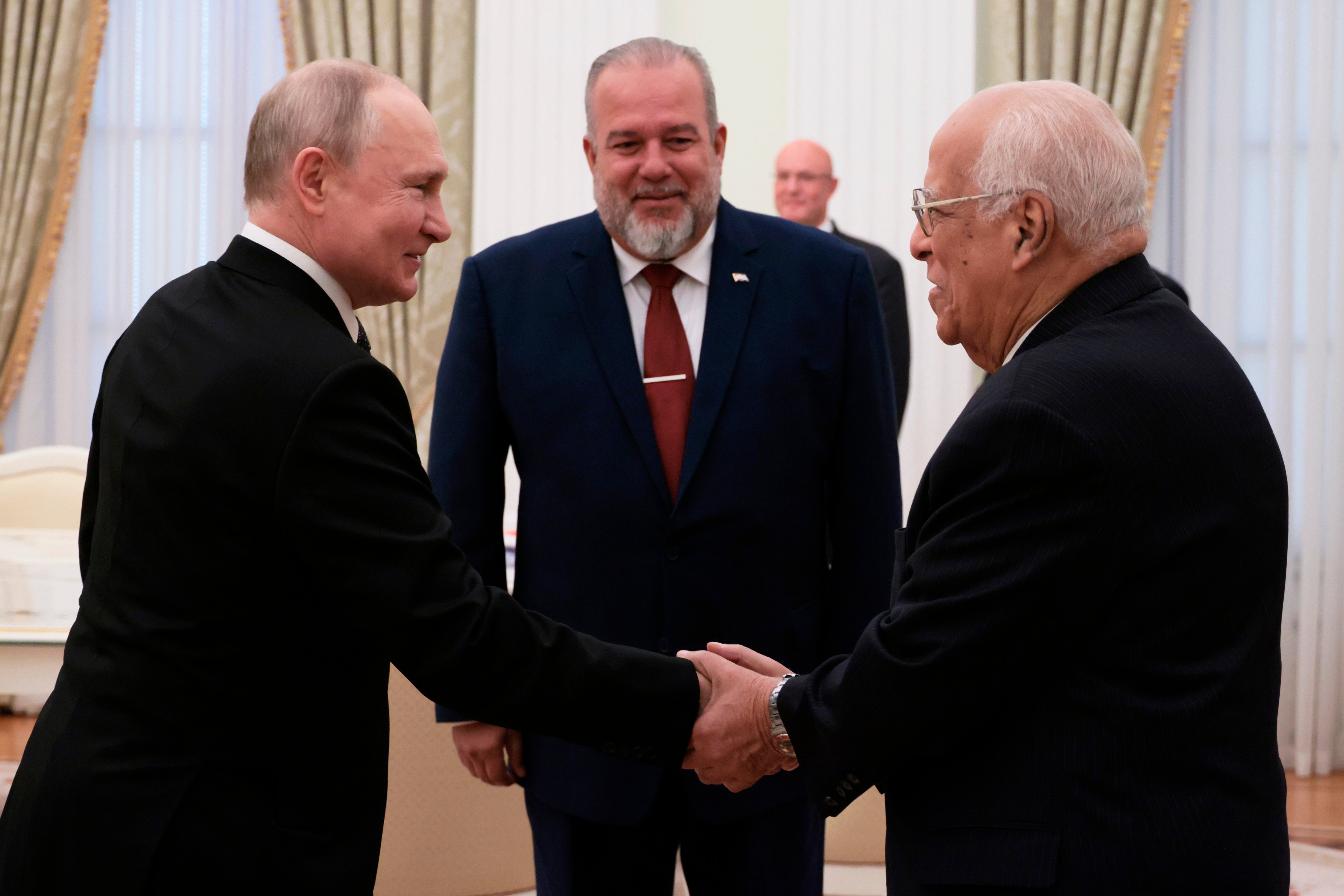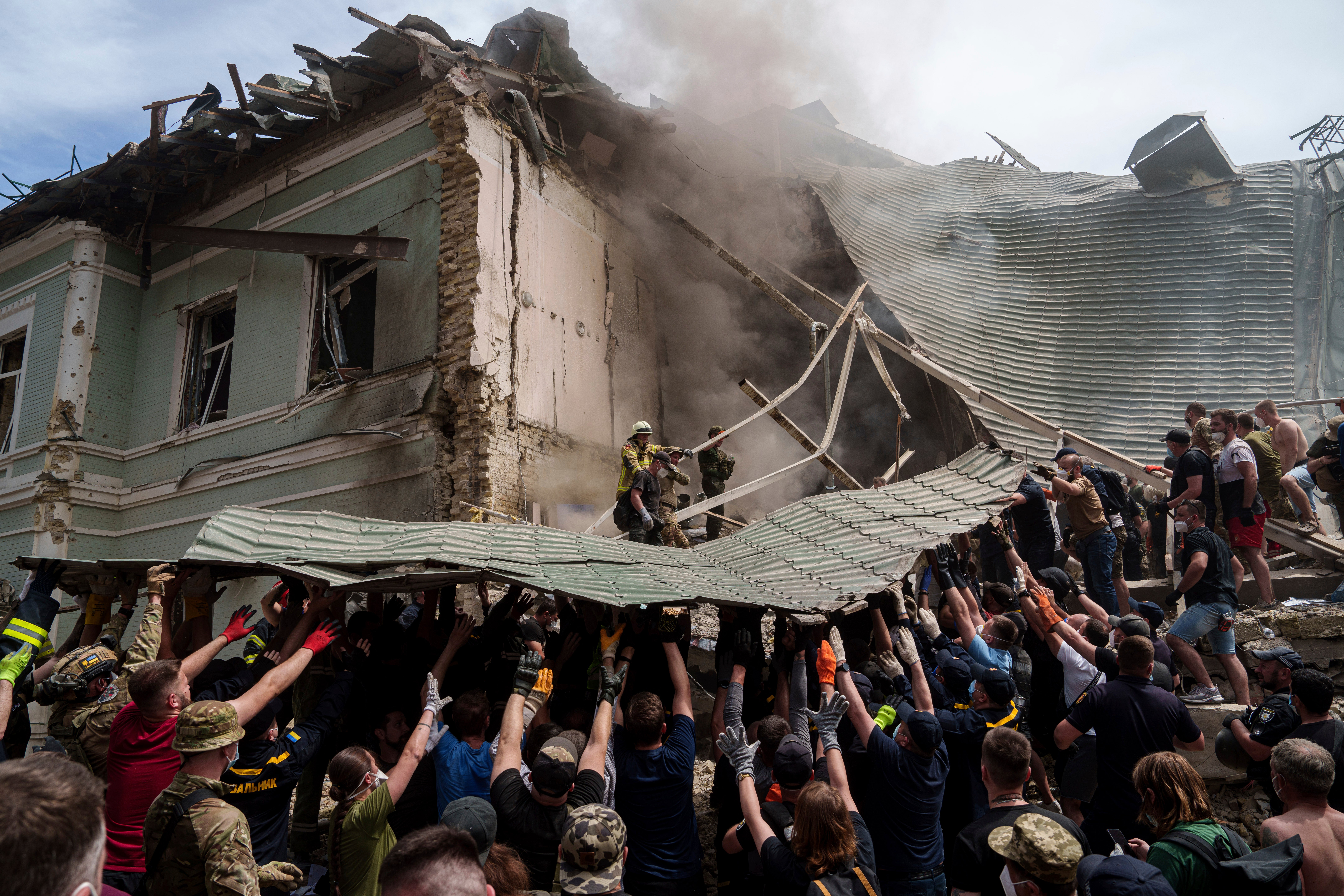Lammy urged to drop ‘ludicrous’ financial aid to Cuba over concerns troops are fighting for Russia in Ukraine

Support truly
independent journalism
Our mission is to deliver unbiased, fact-based reporting that holds power to account and exposes the truth.
Whether $5 or $50, every contribution counts.
Support us to deliver journalism without an agenda.

A senior US congressman has asked the new Labour government to rethink financial aid to Cuba due to concerns that the regime is supplying troops to Vladimir Putin to fight in Ukraine.
Republican congressman Mario Díaz-Balart, who represents the 26th district in Florida and is the son of Cuban exiles, told The Independent he has seen security documents showing “a substantial number” of Cubans have been sent to fight for Russia.
He wants the foreign secretary, David Lammy, to help change Britain’s policy and persuade EU allies to do the same.
Previous reports suggested 200 Cubans had been sent to fight in the Russian army but this figure is understood to have increased.

Rep Diaz-Balart, whose aunt was Fidel Castro’s first wife, has appealed to Mr Lammy to rethink Britain’s involvement in the Paris Club, which has forgiven billions in debt to the communist regime now headed by Miguel Díaz-Canel.
The UK also gave more than £25m in development aid to Cuba between 2010 and 2022.
The UK and EU do not support US sanctions on the regime and have passed legislation to protect companies from those sanctions.
But Rep Diaz-Balart told The Independent that Cuba’s involvement in the war “should be a game-changer”, given that the UK, US and Nato allies are spending billions in military support to protect Ukraine.
He said: “It is ludicrous. It is the concept of on one hand spending taxpayers’ money to try to defeat Putin in Ukraine, which I support. Then with the other hand, spending taxpayers’ money on a country which is helping Putin fight that war. When you forgive the debt or send aid it’s basically taxpayers’ money.”

Rep Diaz-Balart went on: “You [the UK and EU] are giving money to the strongest ally of Putin, including one that has actually sent weapons and has sent personnel to fight with Putin. It is the most irresponsible and also asinine policy ever.”
He accused British and European countries of having “a love affair” with the Castro regime which he accused of being “a state sponsor of terrorism”.
He said he had seen the number of troops being sent but was unable to breach security protocols by revealing it. However, he added that the number of Cuban troops in Ukraine “is substantial”.
Rep Diaz-Balart noted that Cuba had a history of sending troops around the world “as mercenaries” to conflict zones including Angola.
He said young men in Cuba were often being “misled” into joining.
The Paris Club agreed in 2015 to forgive $8.5bn (£6.6bn) out of $11.1bn (£8.6bn) of the island’s debt and interest payments through to 2020. On 9 June 2021, the Paris Club adjusted the island’s payment schedule to extend the deadline for several payments which amount to at least $200m (£156m). In this way, the regime’s next annual debt payment was postponed until November 2022.
But critics have pointed out that the country still has an appalling human rights record as well as being an ally of Putin.
Recent concerns over human rights abuses include the more than 1,000 political prisoners on the island.
Added to that, at least 1,905 citizens have been detained since the first mass protests on 11 July 2021.
Most peaceful protesters have been sentenced from nine to 30 years in prison. At least 22 peaceful demonstrators are imprisoned in labour camps.
The regime will not allow either the UN special rapporteurs on human rights or an EU human rights delegation to travel to Cuba.
Rep Diaz-Balart claims that support for Cuba is mostly fuelled by “anti-American feelings” because of the embargo on the island since Fidel Castro seized power in 1959.




